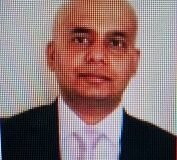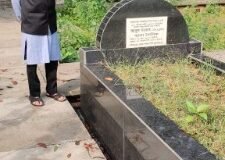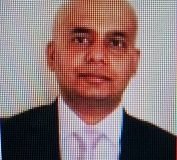Communications and travel by roads, railways, and waterways were difficult in 1971 in ways that are inconceivable today. There lacked the remarkable, with practically no roads, comfortable river transport, and railway links throughout the country in those days. Telecommunications which connect us today were both unthinkable and unprecedented in March 1971.We came to fully hear about the operation searchlight massacre launched by the marauding Pakistani army in the dead of night on March 25 in Dhaka, after three days of distorted information. We came to find out about the extent of the attack only when people reached Patuakhali district town by waterways or on foot. In late 1969, Patuakhali Sub-Division was upgraded to a District. The devastating tidal-bore of 1970 took the lives of thousands. My duties then, were to oversee their proper rehabilitation. Information was so inaccessible, daily newspapers took two or three days to reach. The people by and large, however, understood that after the historical epoch-making speech of March 7 of our great leader Bangabandhu Sheikh Mujibar Rahman, something very serious might happen – but the extent of the sufferings and damage, only few could possibly predict. The voice of Major Zia (later President Ziaur Rahman) on March 27 was a message for the public in general to know that a war for liberation had really begun. This inaccessibility of communications was also a blessing in disguise, since the Pakistan army could not quickly or easily move anywhere in Bangladesh, creating the scope for people to flee and seek refuge in safe havens including the territory of India.The army attacked Patuakhali district HQ on April 26 after almost one month, with six army helicopters and two jets continuously strafing to kill indiscriminately from the sky. Perhaps, such heinous army tactics against innocent citizens was unknown in the history of the world. I left the Patuakhali Dak-Bungalw instantly and crossed the river to take shelter in the village home of a local Chairman. Thus I had to begin my journey to an unknown destination for safe shelter. At last, I was able to cross the border near Chouddagram, Jagannath Dighi after 22 days to take shelter in Tripura. When I approached the local police station at Rajanagar to obtain a certificate of shelter, the officer in charge was surprised on learning about the extent of oppression against civilians by regular armed forces.He assured me he would give certificates to people crossing the border to stay in India until normal situation prevailed in the country. I bore witness to a vast number of refugees including women and children who were crossing the border with small luggage, exhausted and wearing a look of fear, anxiety, and uncertainty. Belonia to Udaypur and then to Agartala town, a 100 kilometer long way was crowded with refugee camps on both sides of the road. What an awful catastrophe. Wealthy people had become destitute all too suddenly. I had more than enough opportunity to observe the horrible plight of people at the Joy Bangla Saranathi shibir (refugee camps) while appointed as the private secretary to the Minister of Interior, Relief and Rehabilitation of Mujibnagar government, and when visiting the biggest salt lake refugees camps (now Salt lake new city) and other youth recruitment and training centres along the border areas of Bangladesh.During our visits to many liberated zones in the month of October, we made a night halt at Dak-Bunglow of Mekhligonj to start our journey to Dhahagram and Angarpota enclaves next day. In the morning, a few naxalites youth, followers of Charu Majumder and Kanu Sanayal, came to ask Shahid AHM Kamaruzzaman the reason for such movement.They expressed their strong resentment, feeling that this power struggle was for an established petty and small bourgeois class of politicians attempting to occupy and enjoy greater benefits at the cost of the very poor and innocent people of East Pakistan (especially helpless minorities). It surprised me to see how these ultra-communists conceived their idea of our war of liberation, knowing nothing of our language movement, our struggle to eliminate two economies, spirit of six points movement, and our sacrifices to establish the voice of the people.The late minister did not hesitate to face them strongly and justify the background of our war of liberation from economic, social, and political points of views, considering it as a war of survival of a nation with distinct cultural and educational heritage.He described the holocaust perpetrated by the Pakistani junta and historical deprivation of the East Pakistani population economically and humiliating us politically. At last, they were apparently convinced and left the Dak-Bunglow compelling our journey almost two hours later than anticipated.While I came out of Dak-Bunglow to see the Mekhliganj town on the bank of river Mahanada, I found many posters demanding Prime Minister Tajuddin Ahmed, A H M Kamaruzzaman, Captain Mansur Ali, and acting President Syed Nazrul Islam to leave India instantly since they represented the bourgeoisie class as sycophants of capitalism with no mandate or manifesto to work for our poor and distressed population.On another occasion, we reached Goalpara district of Assam to resolve the resistance of Indian Muslims who were very strongly opposing our fight for independence. Some refugees took shelter at Goalpara district near the border areas crossing Rahumari, and Chilamari areas. Indian Muslims attacked refugee camps at night with hot water and compelled them to leave India.They felt strongly that these people under wrong and motivated leadership were on a mission to break Pakistan, a Muslim country which attained freedom after much sacrifice. Mr. Sultan Ahmed, Minister of Industries of Assam joined our minister and Mr. Santosh Roy, MP Lokshava from Coochbihar also participated in the discussion in the Circuit house at Dubri for almost a whole night. The district magistrate with his law enforcing agencies was amidst dialogue on how to best control this very sensitive issue. It was decided that Minister Kamaruzzaman, Minister Sultan Ahmed of Assam, and Santosh Roy MP should travel inside Muslim majority areas and make them understand the background and reasons for our war of independence and request them to support the cause of humanity and the Bangladesh war as a whole.It might be observed that there was also a strong lobby of Indian citizens opposing our war for independence. The Indian Government was initially confused for which Prime Minister Tajuddin Ahmed had to take different ways to justify his authority to run the government in exile. He had to invite all MPAs and MNAs elect of East Pakistan to a meeting at Coochbihar to show their confidence in his government in exile.Independence was not an easy task since there were many obstacles and strong resistance at home and abroad. But we achieved our independence and liberated the country after a bloody war within shortest possible time since our fight was for the right cause. This is the time to work hard to achieve the dream of independence and celebrate the golden jubilee with meaningful peace and progress.Even today, there are those who are confused about the spirit and vision of our liberation war including the deeper meaning of the historical speech March 7, 1971. It is in fact the duty of genuine freedom fighters to repeat the voices of leaders who inspired the nation and sacrificed their lives to achieve independence, and save Bengalis from extreme humiliation and extinction.
Don't Miss
 Weekly Bangla Mirror | Bangla Mirror, Bangladeshi news in UK, bangla mirror news
Weekly Bangla Mirror | Bangla Mirror, Bangladeshi news in UK, bangla mirror news





